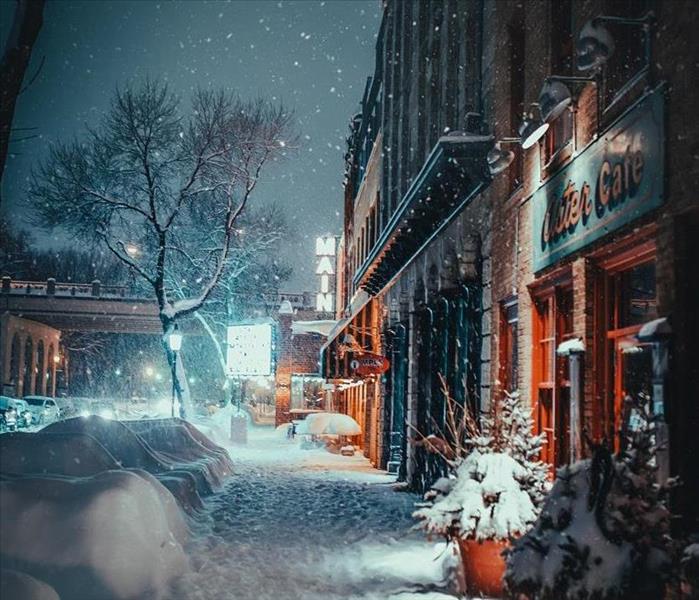The Chilling Consequences: How Cold Weather Can Lead to Water Damage
10/26/2023 (Permalink)
While cold weather may bring cozy nights by the fire and picturesque snow-covered landscapes, it can also present a hidden threat to your home – water damage. Winter's icy grip can lead to a variety of water-related problems that, if left unaddressed, can result in costly and inconvenient damage to your property. In this blog, we'll explore how cold weather can lead to water damage and what you can do to prevent it.
Frozen Pipes
One of the most common culprits of cold weather-related water damage is frozen pipes. When the temperature drops significantly, water inside your pipes can freeze. As water freezes, it expands, which can cause pipes to crack or burst. When the ice thaws, the water starts to leak, leading to potential flooding and extensive damage. To prevent frozen pipes:
- Insulate exposed pipes, especially in unheated areas.
- Let faucets drip slightly to keep water moving.
- Keep your home's temperature consistently warm, even when you're away.
Ice Dams on Roofs
Ice dams are another concern during cold weather, particularly in regions with frequent snowfall. These occur when snow on your roof melts, then refreezes at the eaves, blocking the proper drainage of water. As more melted snow accumulates behind the dam, it can seep under roof shingles, causing water damage to your attic and interior spaces. To prevent ice dams:
- Ensure your attic is well-insulated and ventilated to maintain a uniform roof temperature.
- Safely remove snow from your roof using a roof rake.
Condensation
Cold weather can lead to indoor humidity, which, in turn, can result in condensation on windows and walls. Over time, this condensation can lead to water damage and mold growth. To minimize condensation:
- Use a dehumidifier to maintain appropriate indoor humidity levels.
- Seal any gaps around doors and windows to reduce cold air infiltration.
- Make sure your home is adequately ventilated to circulate indoor air.
Snowmelt
While it may seem harmless, snowmelt can be a source of water damage if not managed properly. As the temperature rises, accumulated snow and ice can turn into a significant amount of water that can infiltrate your home through foundation cracks, poorly sealed windows, or damaged roof areas. To prevent snowmelt-related water damage:
- Keep your gutters and downspouts clean and free from ice and snow.
- Ensure proper grading around your home to direct snowmelt away from the foundation.
- Seal any cracks or gaps in your home's exterior to prevent water infiltration.
Cold weather can bring about a range of water-related challenges that, if not addressed, can lead to significant water damage. Taking proactive measures to prevent frozen pipes, ice dams, condensation, and snowmelt infiltration can help safeguard your home from these winter woes. In the event that you do experience water damage, it's crucial to act quickly and seek professional help to mitigate and restore your property. Remember, with the right precautions, you can enjoy the beauty of winter without falling victim to its water-related pitfalls.






 24/7 Emergency Service
24/7 Emergency Service
